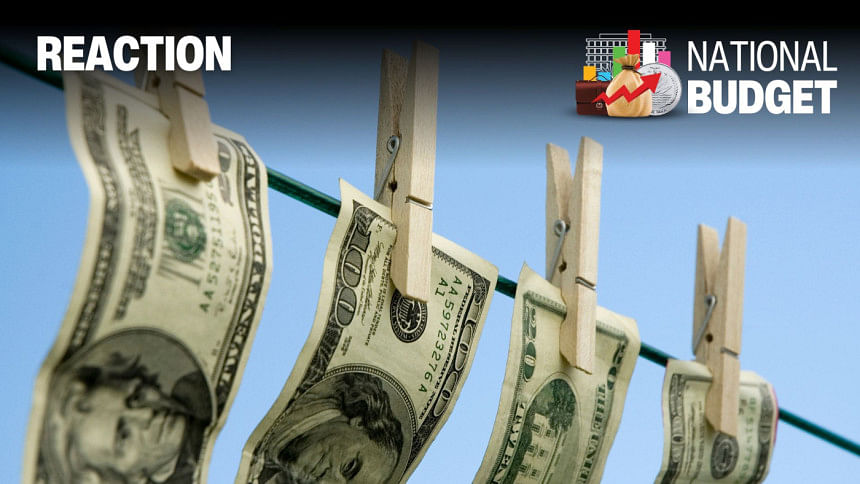TIB slams govt for retaining black money whitening provision

Transparency International Bangladesh has strongly condemned the decision to continue the provision for whitening black money in the proposed budget for the fiscal year 2025-26.
Criticising this move by the interim government, the corruption watchdog said that it reflects a stance completely contrary to the objectives of state reform, particularly the core purpose of the Anti-Corruption Commission reforms.
TIB termed the decision unethical, discriminatory, and in violation of the constitution.
In a press statement responding to the proposed national budget for FY 2025-26, TIB Executive Director Iftekharuzzaman said, "Whatever way it may be interpreted, to undermine the core mandate of state reform in general and anti-corruption in particular, this shows how the interim government has surrendered to the real estate lobby to facilitate corruption."
He said that irrespective of the payable rate, this clearly violates article 20(2) of the constitution under which the state specifically commits to prevent possession of unearned income.
"It is also discriminatory because the real estate market will proceed more aggressively to become an exclusive zone of illicit income owners and deprive honest income earners of the possibility to afford any share of flats or buildings market. Above all, it is corruption-friendly because in reality the government is encouraging people to own unearned and illicit income throughout the year and get it legalised in the name of promoting arguably one of the worst corruption-affected real estate sector."
The TIB executive director further said, "What is most alarming and disappointing is that the government's decision will encourage corruption. In effect, the government is incentivising citizens to accumulate illegal and undisclosed wealth throughout the year with the assurance that such black money will be legitimised at year-end.
"The justification being offered—favoring the real estate sector—is deeply problematic, especially since that sector has been identified as one of the most corruption-prone in the country. We strongly demand the permanent cancellation of this corruption-promoting opportunity to whiten black money, starting with its removal from the revised budget."
The TIB also urged the government to investigate the sources of black money, hold those responsible accountable, and ensure equity and justice in the tax system.
It said that the TIB firmly believes that if the government genuinely wants to claim a firm and effective stance against corruption, it must permanently shut down all avenues for legalising black money.
"Otherwise, anti-corruption activities and policy initiatives will be perceived by the people as mere eyewash, which will further deepen the culture of normalising corruption and reduce the promise of establishing good governance to mere posturing."
The TIB director said that it must be remembered that one of the key recommendations of the ACC Reform Commission—formed by this very government—was to permanently eliminate all provisions for black money legalisation, a recommendation already endorsed by all political parties.
"Yet, by taking a contradictory stance, the interim government is embarrassing itself through such inconsistency."
Similarly, he said, the interim government was expected to provide an update in the budget on the progress made in recovering the vast amount of money laundered from the country. However, the finance adviser addressed this issue with only a single sentence, falling far short of expectations.
"Additionally, a provision has been made to impose taxes and penalties on the wealth and assets of those who laundered money abroad and subsequently renounced their Bangladeshi citizenship."
Yet, the budget fails to clarify how this provision will be implemented, he added.
"Moreover, to enhance revenue collection, the move to separate policy from administration lacks any outlined strategies to ensure transparency and accountability in this sector. TIB considers this omission in the budget speech to be genuinely disappointing."

 For all latest news, follow The Daily Star's Google News channel.
For all latest news, follow The Daily Star's Google News channel. 








Comments